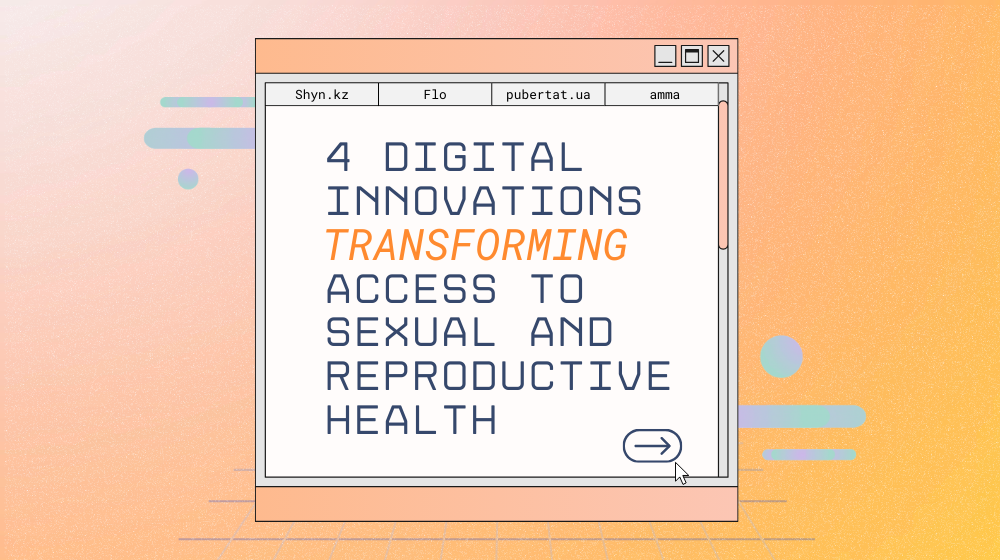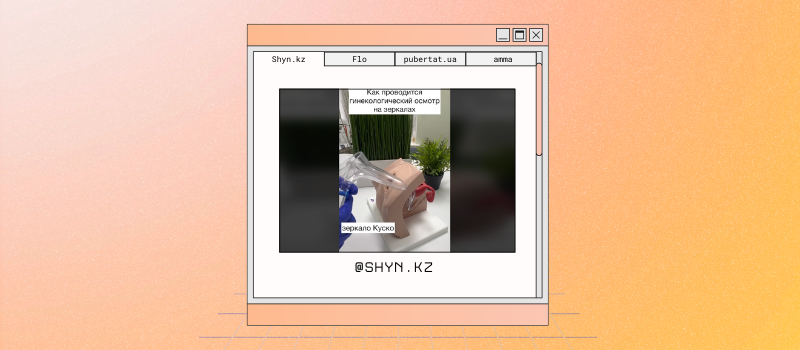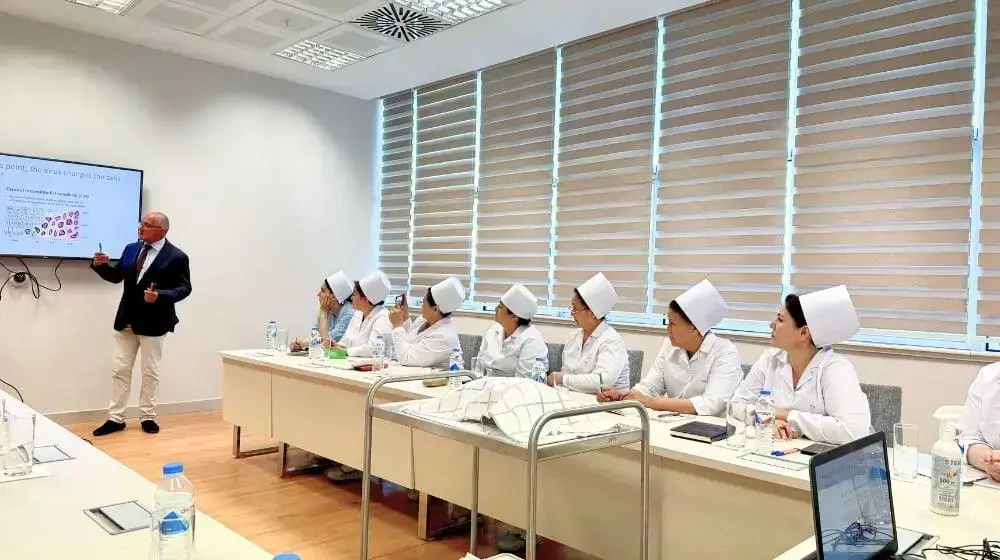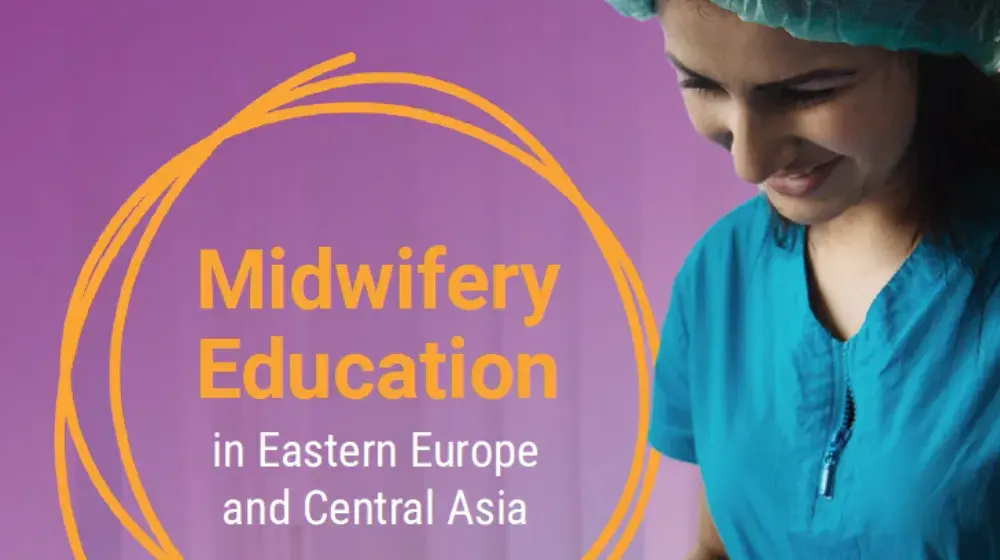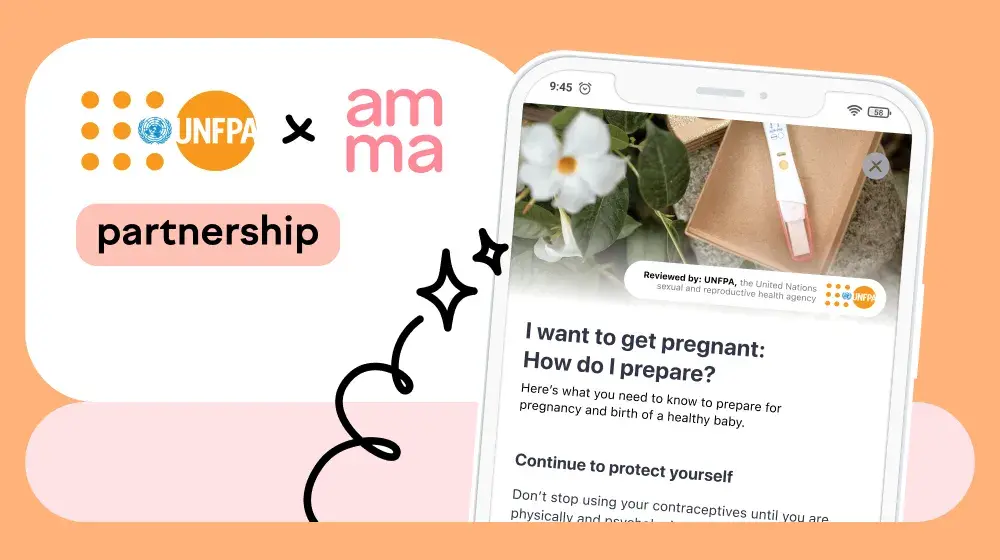In the Eastern Europe and Central Asia region, demand is high for quality and inclusive sexual and reproductive healthcare as well as reliable, evidence-based information. But access to these essentials has been hampered by conservative social norms and stigmas and exacerbated by emergencies like the war in Ukraine and the COVID-19 pandemic.
Instead, technology has played a vital role in filling the gap and transforming how people across the region, especially young people, search for knowledge and educate themselves. Here are four innovative projects from our region that are breaking down barriers and empowering people to take charge of their health and bodies.
1. Harnessing social media to engage and educate youth in Kazakhstan
What does a speculum examination look like? Can you get pregnant from one drop of sperm? Why is one of my breasts bigger than the other? These are some of the questions about sexual and reproductive health that have generated more than 100 million views on the UNFPA-supported TikTok account @Shyn.kz.
Shyn, which means "truth" or "authenticity" in the Kazakh language, was created by UNFPA’s Country Office in Kazakhstan and its local partner, the Focus on People Foundation NGO, in response to demand from the country’s young people for accurate and straightforward information about sexual and reproductive health.
Instead of dry lectures filmed in high-tech studios, Shyn.kz posts simple videos featuring doctors at an actual youth-friendly health resource centre in Almaty. The videos answer real-life questions asked by the centre’s patients or through interactive Q&A sessions, making content more relatable, relevant and accessible to young audiences. They also rely on humour and viral trends to break down the social taboos around discussing sexual and reproductive health.
To ensure this important information reaches the largest possible audience, across the region and beyond, the videos are made in both Kazakh and Russian languages. Without this kind of online content, many young people would not have access to reliable information about their changing bodies, relationships and sexual health.
Since launching the account, Shyn.kz has gained more than 210,000 followers and 2.7 million likes. Its most popular video – an 18 second demonstration of how a medical instrument known as a speculum is used during a gynaecological examination – exceeded 76 million views and was saved more than 63,000 times. Numerous comments and messages from young people thank Shyn.kz for helping to “shed light on these topics” and “move the country forward.”
2. Partnering with a leading AI-powered digital app to increase women’s health literacy
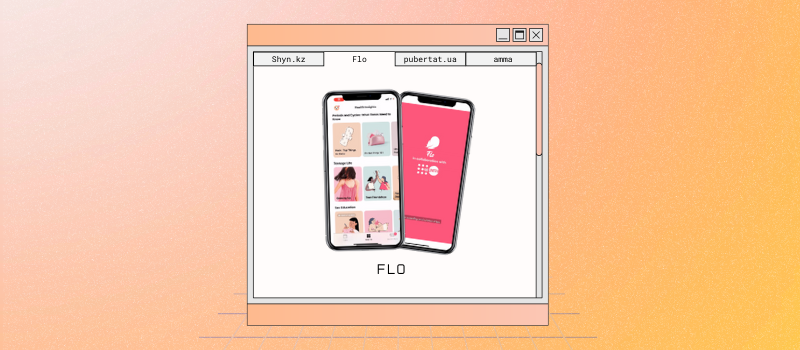
Since 2018, UNFPA’s Regional Office for Eastern Europe and Central Asia has been partners with Flo, the number one digital app for women’s health. It has more than 60 million monthly active users worldwide – the majority under the age of 24 – who rely on Flo’s cutting-edge AI technology to track their periods, predict their ovulation cycles and access health information.
The app boasts a huge library of learning resources and courses in 22 languages reviewed by experts on women’s health and well-being. UNFPA has contributed almost 100 articles that are available for free and have been read by more than 109 million users in-app and online. UNFPA and Flo are also collaborating on research about user behaviour and reproductive health gaps that can drive more innovations in the field of women’s health.
The latest development in UNFPA and Flo’s partnership is the Pass It On Project. Its goal is to provide Flo’s premium subscription to one billion users free of charge in 66 low- and middle-income countries where sexual and reproductive health information is more limited, including Kyrgyzstan, Tajikistan, Ukraine and Uzbekistan. UNFPA-collaborated articles are being translated for these countries. Seventeen million women and girls have so far received their free accounts. Surveys have shown that after using the premium subscription, women and girls have higher levels of knowledge about female and menstrual health, as well as lower levels of feeling stigma or shame around periods.
3. Ukrainian viral video campaign turns adolescent anxieties into safe space to explore “Puberty”
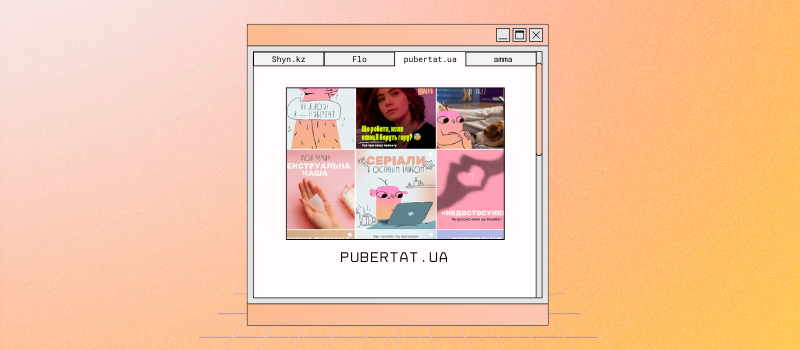
Puberty is a daunting phase in every person’s adolescent life that is often filled with anxieties and misconceptions. To demystify the experience and address sensitive topics in a way that feels authentic and reassuring, UNFPA in Ukraine launched a digital project based around the animated character named “Puberty.”
“Puberty” navigates the challenges of adolescence, tackling myths and stereotypes to foster a healthier, stigma-free understanding of sexuality and relationships. Through a series of short videos, young viewers are offered guidance on healthy relationships, growing up, reproductive health, contraception, unplanned pregnancy, sexual orientation, infectious disease prevention, and HIV awareness.
Then, as part of the second stage of the campaign, UNFPA created three more short videos with open endings and asked followers to send their ideas for the final script. By encouraging Ukrainian teens to bring their own perspectives to the storylines – relationships, inclusiveness and HIV awareness – the videos amplified youth voices and reflected their lived realities. Meanwhile, as part of UNFPA's ongoing humanitarian response, the campaign also created content tailored to the current conflict, focusing on personal safety for adolescents during crisis conditions.
Puberty’s Instagram page has reached more than 10 million users, with around a quarter coming in the early months of 2024 alone. The comment section also shows the immense impact this campaign has had, with followers frequently expressing gratitude for the content, sharing personal stories about their own challenges, and engaging with their own questions that may be considered taboo or stigmatized in the offline world.
4. Building knowledge through pregnancy-tracking app
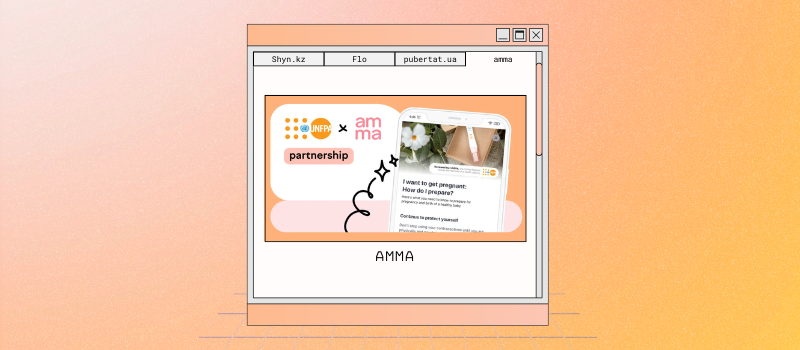
UNFPA’s Eastern Europe and Central Asia Regional Office has continued to grow its digital partnerships and, in 2022, started working with amma, one of the world’s largest online communities for pregnant women and their families.
The AI-powered app provides personalized tools to monitor changes in the expectant mother's body, nutrition and mood. It also has hundreds of articles written by experts from various fields with information about every phase of the baby's development.
Amma is available in 16 languages and has been downloaded more than 25 million times worldwide. In Eastern Europe and Central Asia, UNFPA expertise has been used to produce articles in four of the region’s languages, focusing on the challenges faced during pregnancy. In May, the partnership was renewed and will be expanded to include content in more regional languages and topics related to postnatal recovery.
Mobile apps like amma can be game-changers, especially in rural or otherwise under-served areas, where women and girls face greater hurdles to accessing information about their sexual and reproductive health and rights. Especially during life-changing events like pregnancy and birth, the knowledge and support provided by these technologies can empower women to make informed decisions about their health and futures.

